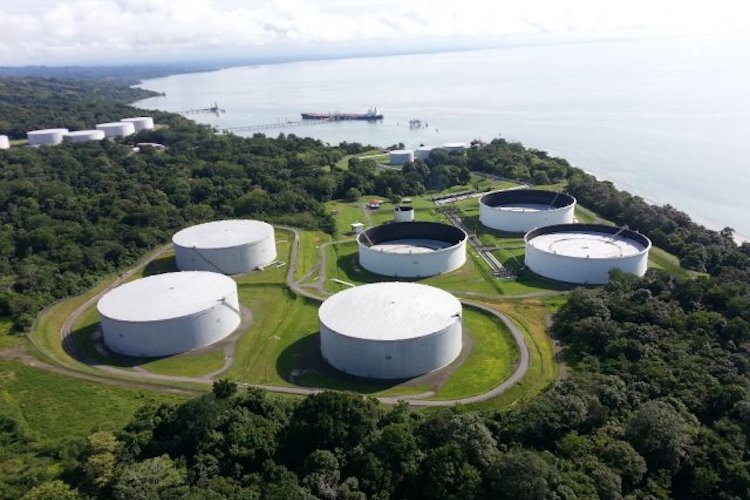Elida Moreno and Marianna Parraga report for Reuters of this new investment by Shell.
Royal Dutch Shell agreed to lease capacity at a large oil terminal in Panama that has been used by U.S. refiner Tesoro Corp , sources involved in the deal told Reuters, gaining much-needed storage for its crude operations.
The facility, designed for storage and transshipment of oil, is owned by Petroterminal de Panama and provides up to 14 million barrels of storage capacity, a pipeline network that connects the Atlantic and Pacific oceans, and docks for very large tankers.
“We have signed a contract with Shell for a three-year period involving all the available space we have,” said an official from the Panamanian government.
It was still unclear when the contract would start and the capacity it involved, but the source said the deal will soon be submitted to the Finance Ministry’s board of directors for approval.
Shell and Tesoro did not immediately respond to requests for comment.
Access to oil facilities in Central America or the Caribbean is key for producers along the Atlantic basin because a saturated storage network has forced some to sell their crude at very low prices in recent years during the oil-price crash.
Petroterminal de Panama in 2008 announced it would reverse the flow of its 81-mile (130-km) trans-Panamanian pipeline. After the completion of the project in 2010, Tesoro started shipping more than 100,000 barrels per day (bpd) of crude through the line under a seven-year agreement.
The contract, which also included leasing existing facilities and building dedicated storage tanks for Tesoro, allowed the San Antonio, Texas-based firm to manage crude grades from Africa, South America and the North Sea for its Pacific refineries.
For Shell, having access to Panama would expand its current network in the Atlantic. After buying BG Group, it became the largest gas player in the Caribbean island of Trinidad and Tobago, where it also has blending and lubricant facilities.
Shell also participates in exploration and production projects in Brazil, Venezuela, Colombia, Guyana, Peru and Argentina, and has a trading unit in Barbados. (Reporting by Elida Moreno in Panama City and Marianna Parraga in San Antonio; Editing by Gary McWilliams and Jonathan Oatis)
